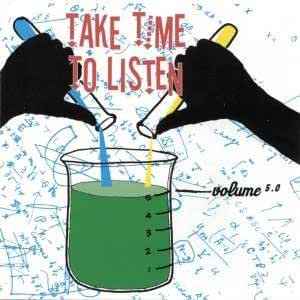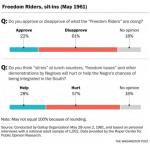Kaitlyn Bird, “The Invisibility I Feared”
Instinctively, I knew to keep my unsheltered status hidden. Even as a child, I understood that destitution doesn’t bring support; it delivers scorn. …
That’s the most haunting part of my experience: the knowledge that thousands of children, millions of my neighbors, are barely enduring, struggling to maintain roofs over their heads, food and water, and the energy to wake up and make the city run. Our society makes it difficult to survive, and then penalizes the people who can’t. We have a nation of people living paycheck to paycheck, a layoff or an accident away from disaster, and yet we have so much contempt for the living evidence of this cruelty, for the people who fall through the cracks and never get back up.
 Alon Milwicki, “George Soros Tropes Are Harmful and Never-Ending”
Alon Milwicki, “George Soros Tropes Are Harmful and Never-Ending”
Tamkin suggests that because he is Jewish, is foreign and works in finance, Soros ticks all the boxes for extremists, the conspiracy theorists and the ignorant. His very identity can and has been successfully manipulated into many of the endemic and lasting antisemitic tropes. Jews are, have been, and will likely always be frequent scapegoats. As a people, they have been considered a part of the body politic until they are not. They have been cast as outsiders masquerading as members of society, nonconformists playing at conformity, and a shadowy force plotting and planning behind the scenes to ensure their success and survival. From the “deep state” to control of media, society or government, to running the world finances, to being disloyal to their adopted countries, every one of these tropes has been evident in the history of antisemitism. What should give us pause is that each of these has also been used in association with George Soros.
Isabela Dias, “Birthright Citizenship Is Fundamental to ‘Who We Are as a Nation.’ So Why Do Republicans Attack It?”
The Civil Rights Act of 1866 served as a model for the 14th Amendment, which was ratified in 1868 and repealed the notorious Supreme Court ruling in Dred Scott v. Sandford that had denied citizenship to Black people. Its first sentence, the citizenship clause, states that “all persons born or naturalized in the United States, and subject to the jurisdiction thereof, are citizens of the United States and of the state wherein they reside.” In effect, the 14th Amendment enshrined birthright citizenship in the Constitution. “Adopted as part of the effort to purge the United States of the legacy of slavery,” historian Eric Foner wrote in The New York Times in 2018, “the principle of birthright citizenship remains an eloquent statement about the nature of American society, a powerful force for assimilation of the children of immigrants, and a repudiation of our long history of racism.”
Betsy Phillips, “Again, Yes: America Was Founded on White Nationalist Values”
White nationalists do embody a true America. You can’t understand American history at all if you don’t understand it as a white nationalist project. Unfortunately for white nationalists, all the rest of us were listening while they were daydreaming about how awesome America could be if we recognized that everyone is created equal, that we have certain inalienable rights — including life, liberty, and the pursuit of happiness. When white nationalists decided it would be cool if our leaders were agreed upon by the citizens and that citizenship could be expanded to people who hadn’t had voting rights in their home countries, when white nationalists amended the Constitution to try to ensure that there wouldn’t be two tiers of justice, we were all listening.
We all were like, “Yeah, that sounds great! Where do we sign up?” And then for 250 years, white nationalists have been trying to come up with reasons why the rest of us can’t sign up for all that. That is just the fundamental issue at the heart of the United States — deeply flawed assholes, some of whom were doing great evil, had a really awesome idea that they wanted to share only with their buddies. But the rest of us want in on that idea.
Malcolm Foley, “Violence and ‘A Christian Nation'”
When we ask the question of who we are, one thing that must enter into that answer is our consistent, often racialized, violence. This violence plagues both our past and our present, whether in the “fast” violence of lynching or the “slow” violence by which hunger and homelessness kill men, women and children of all races.
It is this fact that is the fundamental reason why I am always baffled and offended, as a pastor and a historian, by claims that the United States is, has been or will be a Christian nation. …
It is best for us to be clear minded about ourselves, our history, our present and our future. Rather than taking a rosy picture of our past and present in order to coast into a rosy future, let us be relentless in our dissection of our past, relentless in our reckoning and relentless in our repentance.
W.E.B. Du Bois in “Religion in the South” (1907) (via)
Is the civilization of the United States Christian?
It is a matter of grave consideration what answer we ought to give to that question. The precepts of Jesus Christ cannot but mean that Christianity consists of an attitude of humility, of a desire for peace, of a disposition to treat our brothers as we would have our brothers treat us, of mercy and charity toward our fellow men, of willingness to suffer persecution for right ideals and in general of love not only toward our friends but even toward our enemies.
Judged by this, it is absurd to call the practical religion of this nation Christian. We are not humble, we are impudently proud; we are not merciful, we are unmerciful toward friend and foe; we are not peaceful nor peacefully inclined as our armies and battle-ships declare; we do not want to be martyrs, we would much rather be thieves and liars so long as we can be rich; we do not seek continuously, and prayerfully inculcate, love and justice for our fellow men, but on the contrary the treatment of the poor, the unfortunate, and the black within our borders is almost a national crime.











